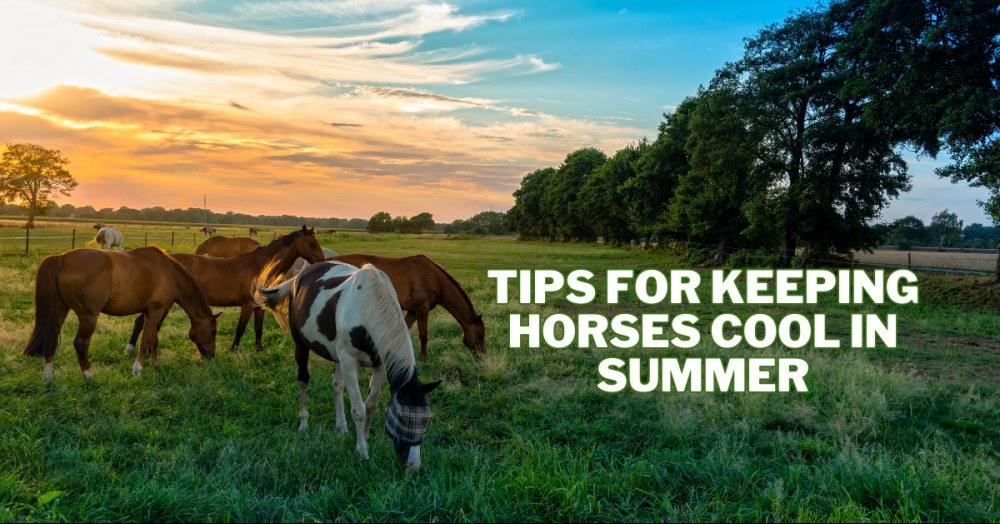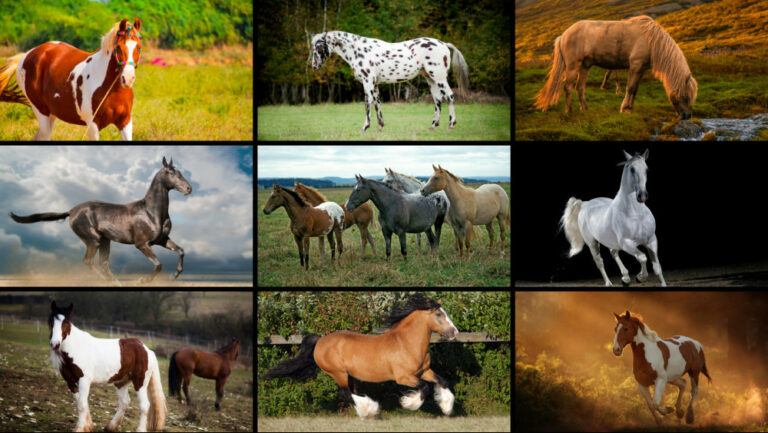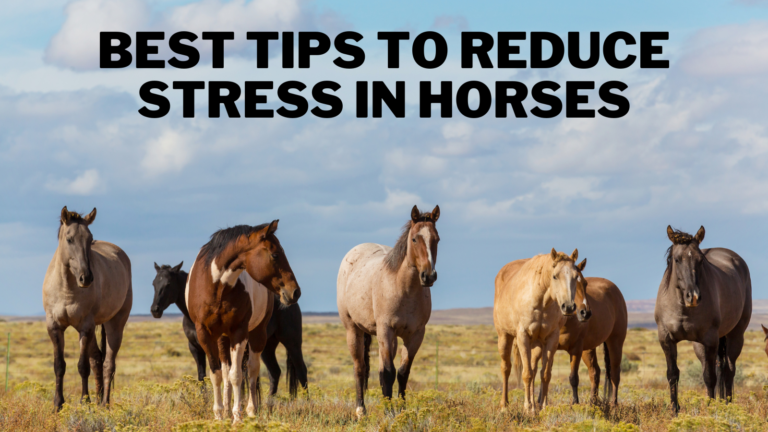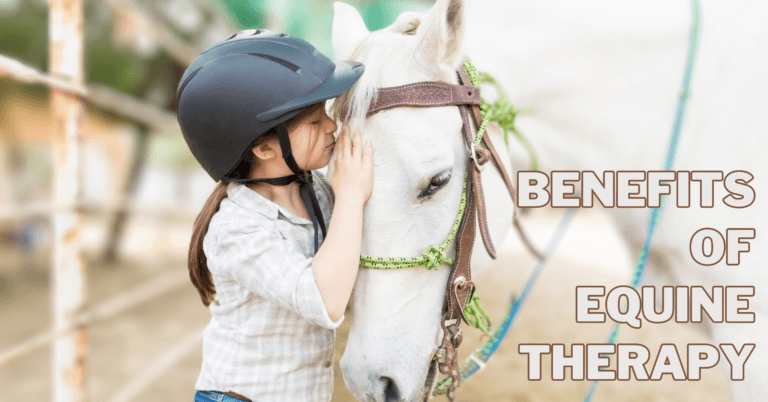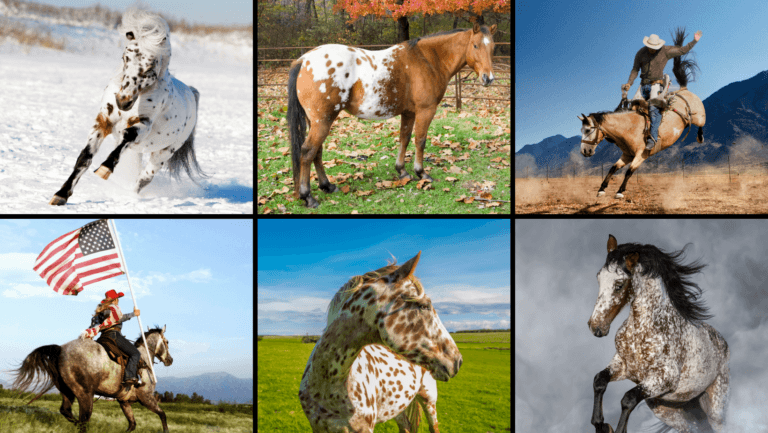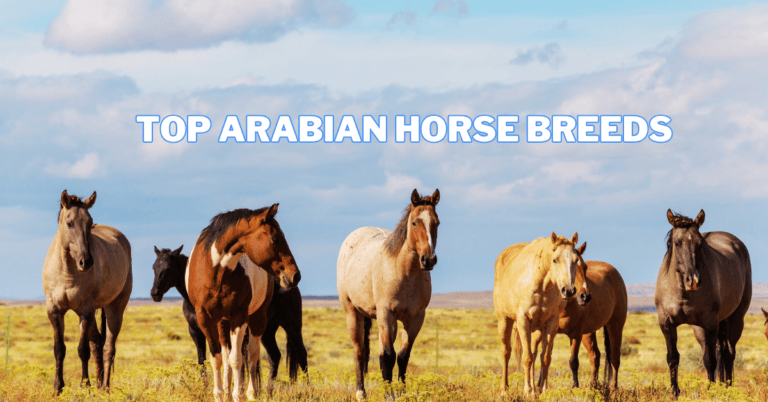Best Tips For Keeping Horses Cool In Summer
Best Tips For Keeping Horses Cool In Summer
Summer can bring scorching temperatures and sweltering heat, making it essential for horse owners and caretakers to take extra measures to keep their equine companions cool and comfortable.
Horses are highly susceptible to heat stress and can suffer from dehydration, heatstroke, and other heat-related ailments if not properly managed during hot weather.
This article will explore valuable tips and strategies for keeping horses cool and ensuring their well-being throughout the summer.
By implementing these practices, horse owners can help their beloved animals beat the heat and enjoy a safe and pleasant summer season.
Effective Tips For Keeping Horses Cool In Summer
Ensuring our equine friends stay cool and comfortable amidst rising temperatures is important as summer approaches.
Horses are highly susceptible to heat stress, dehydration, and other heat-related issues, so it's crucial to take proactive measures to keep them cool and safe. Here are some tips for keeping your horse cool in summer:
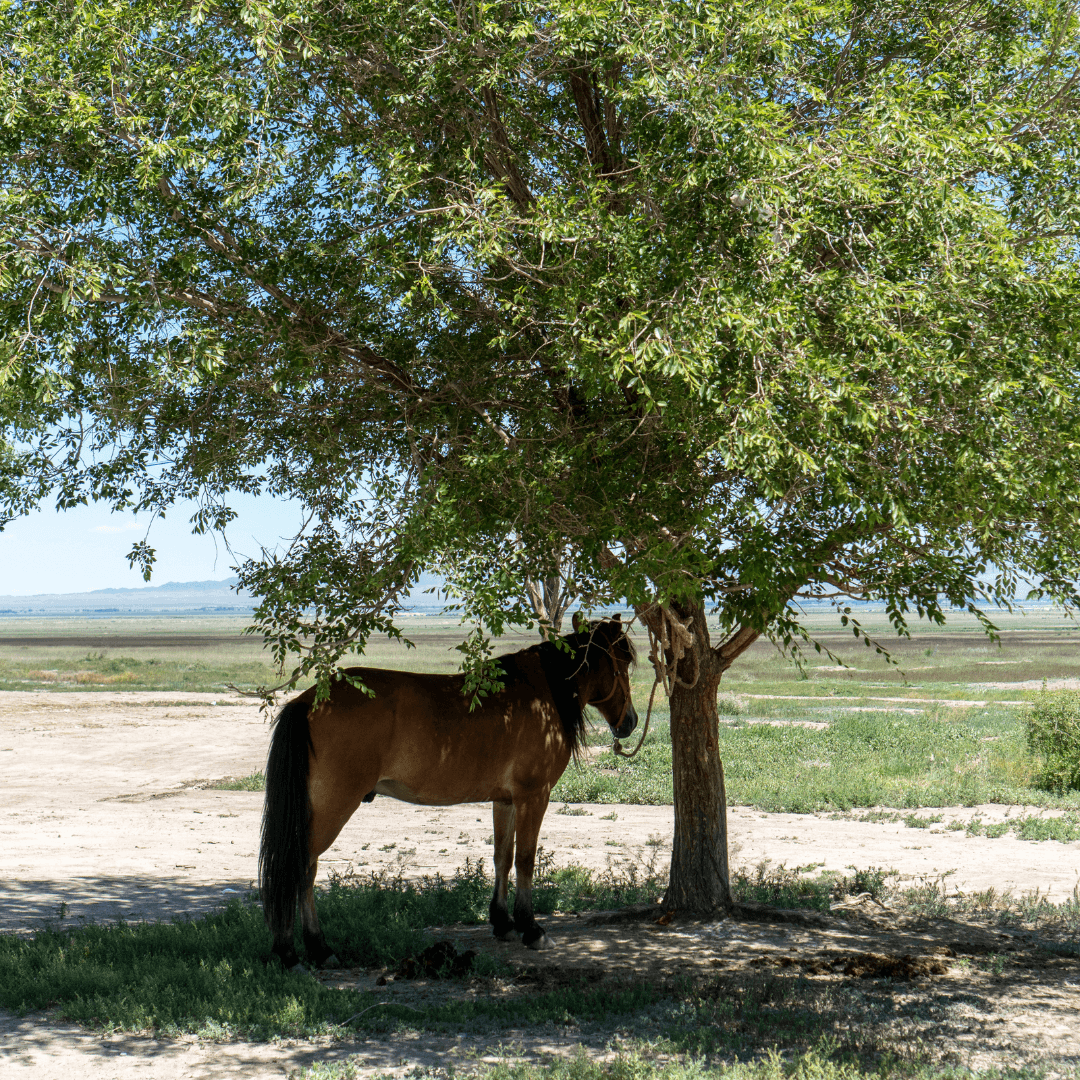
1. Provide Ample Shade
Providing ample shade for your horse during hot summer days is crucial to help it escape the sun's direct heat.
Ensure trees, run-in shelters, or shade cloths are available in their turnout area or paddock.
These shaded areas protect them from the scorching sun and create a cooler environment by reducing heat buildup.
Trees with dense foliage offer natural shade, while run-in shelters provide a more enclosed and protected space. If natural shade options are limited, consider using shade cloths or tarps to create additional shaded areas.
Strategically place these buildings to obscure the sun's rays at the hottest times of the day.
Adequate shade helps keep your horse cool, protects them from sunburn, and reduces the risk of heat-related ailments.
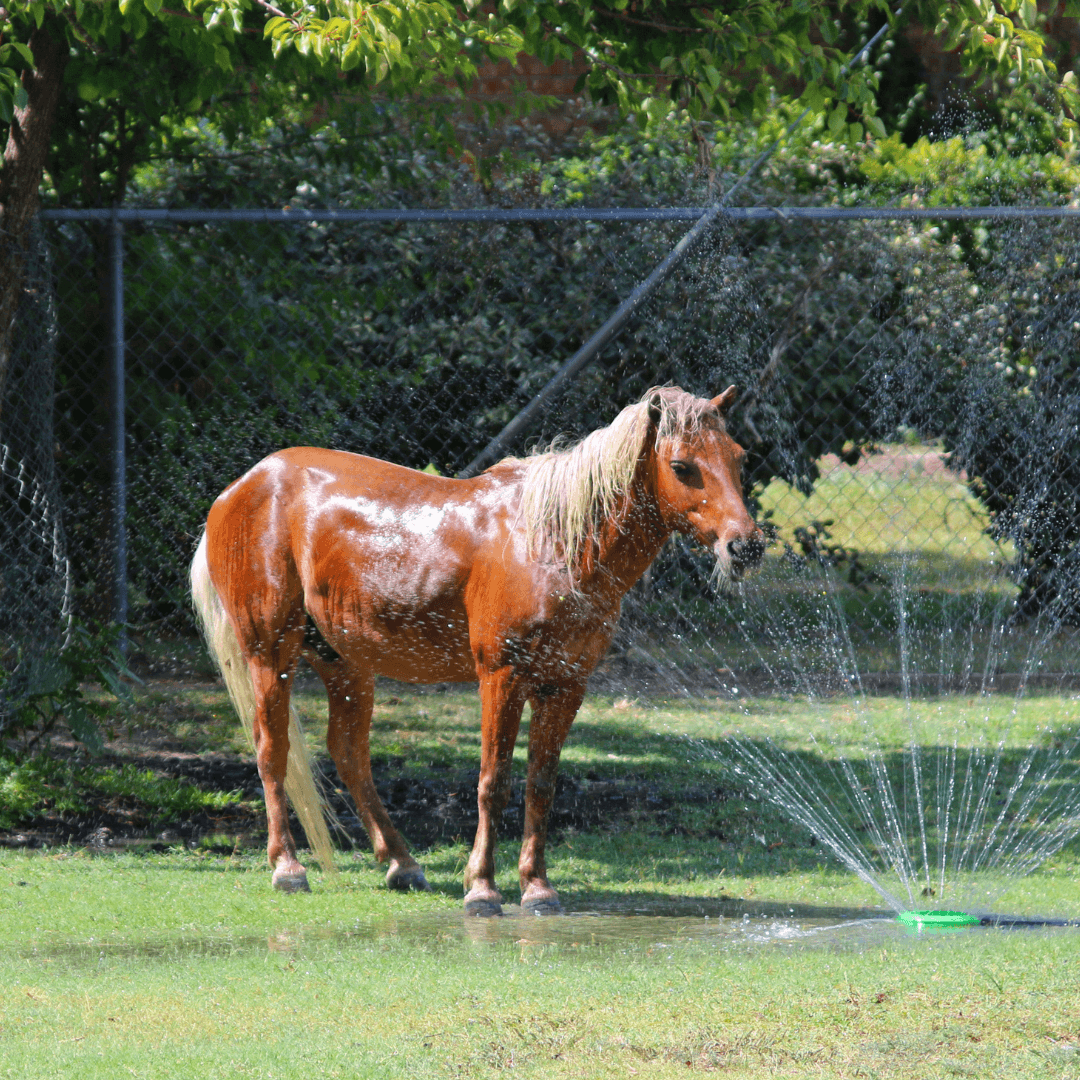
2. Optimal Turnout Schedule
To keep your horse cool and comfortable during the summer, it's important to adjust their turnout schedule to avoid the hottest parts of the day.
The early morning and late evening hours are cooler, making them the optimal times for turnout.
During these times, the sun is not as intense, and the temperatures are generally lower, reducing the risk of heat stress.
By allowing your horse to graze and move around during these cooler periods, you minimize their exposure to excessive heat.
It's important to ensure that your horse can access shade and fresh water during turnout to support their well-being further.
Adjusting the turnout schedule also allows your horse to rest in a shaded area during the hottest hours of the day, keeping them more comfortable and reducing the chances of heat-related issues.
Always monitor weather conditions and be flexible with your schedule to ensure the safety and comfort of your horse.
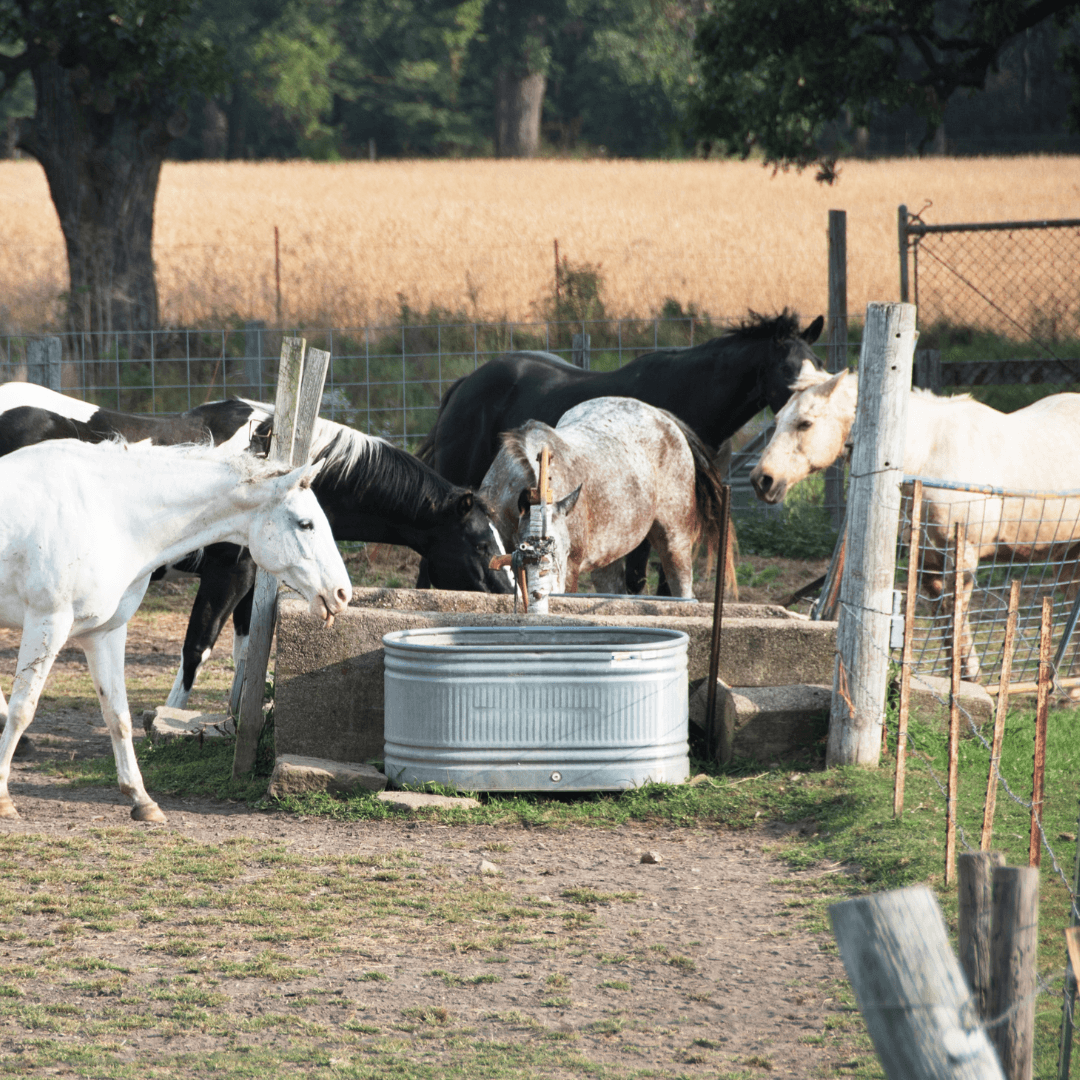
3. Adequate Hydration
Ensuring your horse is properly hydrated is essential for their well-being during summer. Always provide fresh and clean water for your horse, and ensure that water troughs or buckets are constantly filled.
Horses can drink significant amounts of water, especially in hot weather, so monitoring their water supply is important.
Encourage regular drinking by keeping water easily accessible and at a suitable temperature.
Consider adding electrolytes to their water, which can help replenish essential minerals lost through sweating and promote hydration.
Electrolytes can be found in commercial supplements specifically formulated for horses.
A salt lick in the pasture or stall can encourage your horse to consume additional electrolytes and help regulate fluid balance.
Remember to clean and refill water sources frequently to ensure freshness.
By prioritizing hydration, you can help prevent dehydration and maintain your horse's overall health and well-being in the summer heat.
Best Horse Care Tips And Tricks
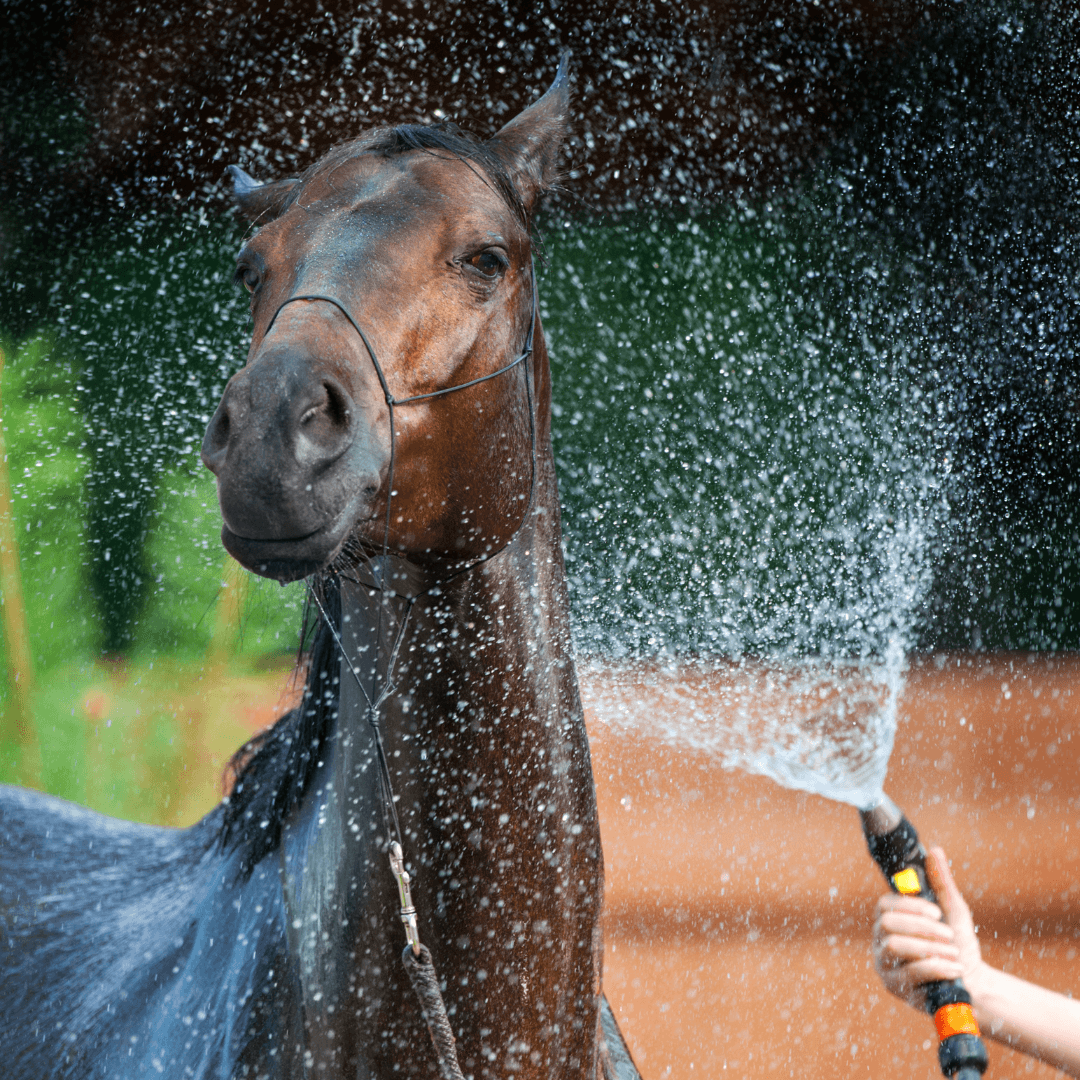
4. Mist Or Spray With Water
Misting or spraying your horse with cool water is an effective way to help them cool down and find relief from the heat.
Using a gentle spray or spray bottle hose, lightly misting their body, paying particular attention to areas where heat accumulates, such as the neck, chest, and underbelly.
These areas have large blood vessels close to the surface, and cooling them down can help lower your horse's overall body temperature.
The evaporative cooling effect of the water on their skin provides temporary relief and can help prevent overheating.
If your horse enjoys being sprayed, you can gradually increase the pressure and coverage area as it becomes more comfortable.
However, be mindful not to spray directly into their face or ears. Additionally, always use comfortably cool water, not cold, to prevent any shock to their system.
Misting or spraying with water is a simple and refreshing method to help your horse beat the heat and maintain their well-being during the hot summer days.
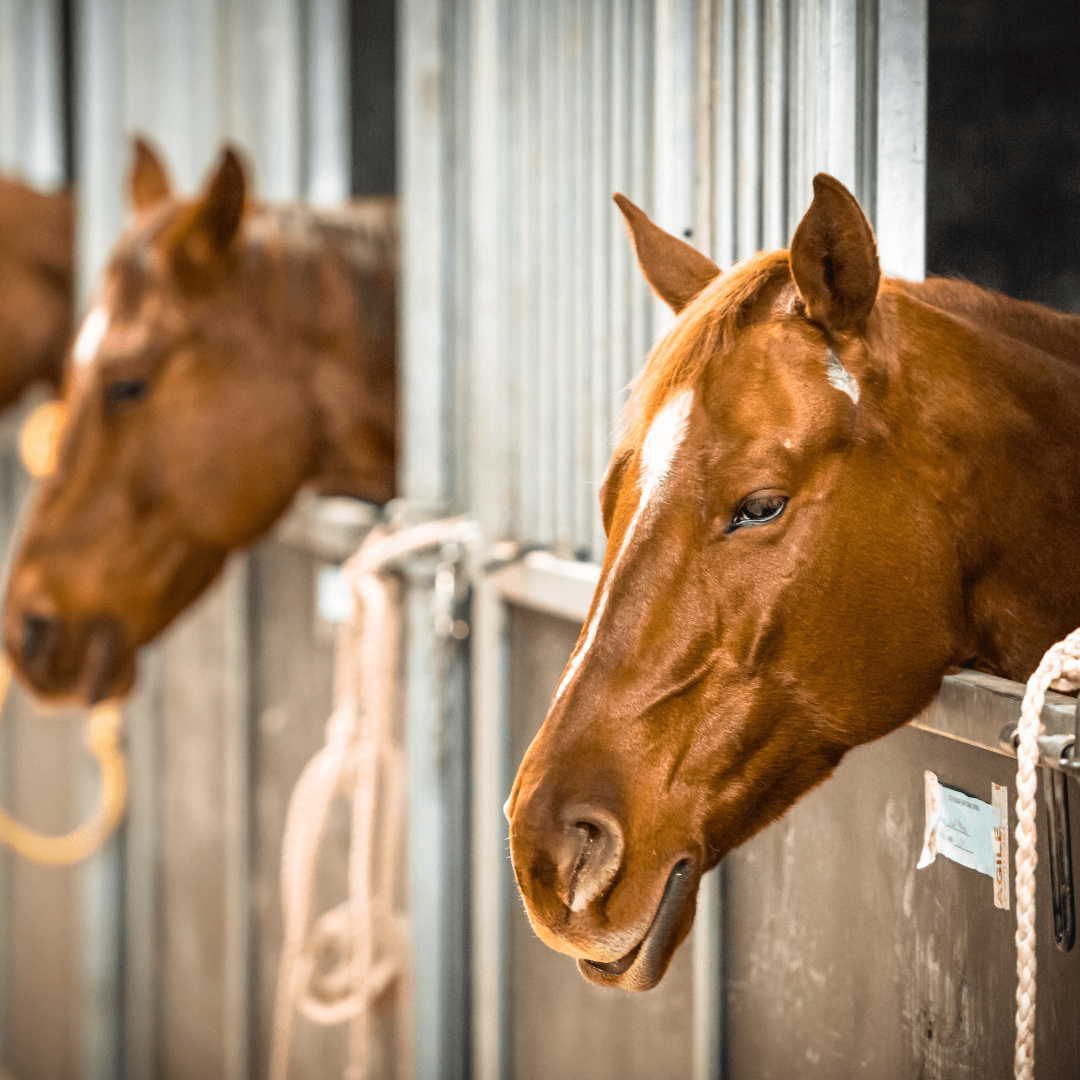
5. Use Fans Or Misters
Installing fans or misting systems in the barn or stable is a great way to relieve your horse during hot summer days.
Fans can create a cooling breeze that helps circulate the air and reduce the ambient temperature.
Position the fans strategically to ensure proper air circulation throughout the area where your horse spends their time.
This can help dissipate heat and provide a more comfortable environment.
Contrarily, misting systems spray a fine mist of water into the air, which cools the air as the water dries. This can help lower the temperature and provide temporary relief from the heat.
Misters can be installed in specific areas or along the barn's perimeter, depending on the size and layout of the facility.
When using misters, ensure that the water droplets are small enough to prevent excessive wetting of the horse's coat, which could interfere with their natural cooling mechanisms.
Fans and misting systems can help create a more pleasant and comfortable environment for your horse, minimizing the risk of heat-related issues and promoting their well-being during summer.
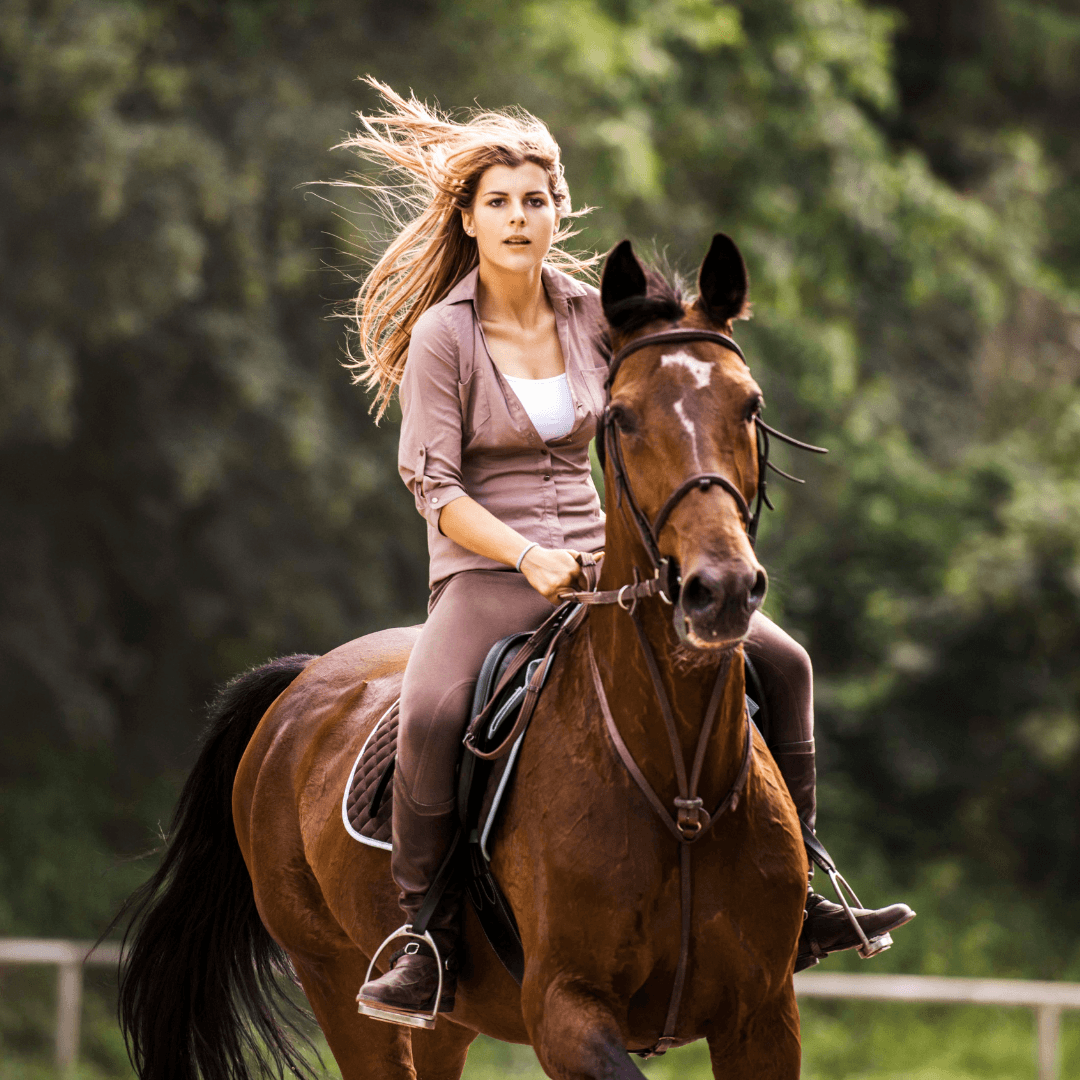
6. Limit Intense Exercise
Adjusting your horse's exercise routine during the hot summer is important to prevent overheating and promote their well-being.
Limit the intensity and duration of workouts to avoid excessive exertion in high temperatures.
Schedule exercise sessions during the cooler parts of the day, such as early morning or late evening, when the temperatures are lower.
This helps minimize the risk of heat stress and allows your horse to exercise more comfortably.
Pay close attention to your horse's body language and monitor them for signs of overheating, such as excessive sweating, rapid breathing, or sluggishness.
If you notice these signs, stopping the workout and providing immediate rest and access to water in a shaded area is crucial.
Remember that horses cannot cool themselves through sweating, so it's important to be cautious and vigilant during hot weather.
Additionally, consider alternative forms of exercise, such as light trail rides or engaging in activities that don't require intense exertion.
Always prioritize your horse's safety and well-being by adapting their exercise routine to the current weather conditions.
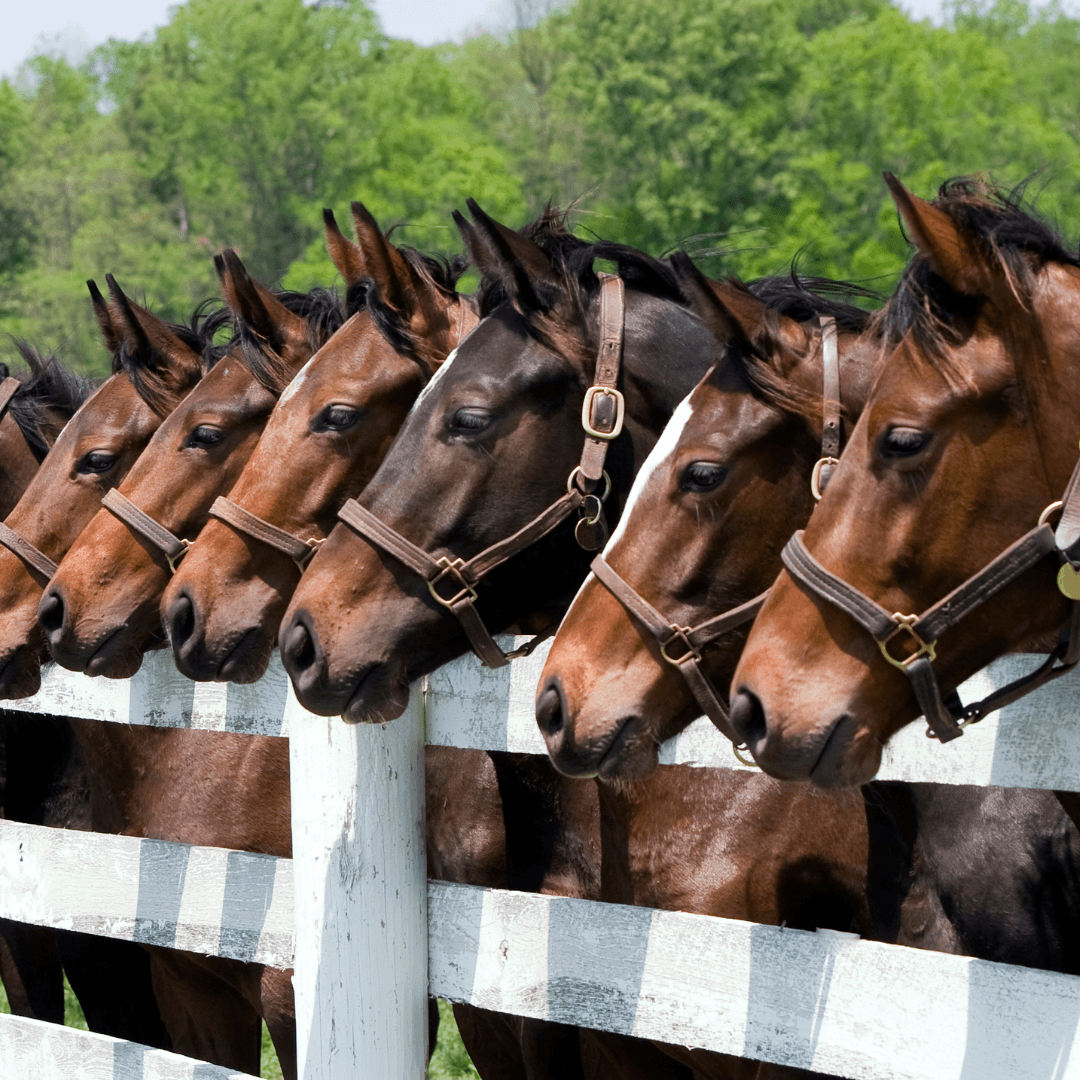
7. Maintain Proper Ventilation
Proper ventilation is crucial for maintaining a comfortable environment for your horse during the summer. Good airflow helps prevent heat accumulation and stagnant air in barns and stables.
To ensure proper ventilation, open windows and doors to allow natural air movement. This helps create a breeze that carries away heat and promotes fresh airflow.
If natural ventilation is limited, consider strategically placing fans throughout the facility. Fans can help circulate the air and create a cooling breeze, improving airflow.
Additionally, installing vents or louvres in the barn can facilitate fresh air flow while allowing hot air to escape.
These vents should be placed strategically to take advantage of natural wind patterns. It's important to regularly clean and maintain ventilation systems to prevent dust and debris buildup, which can impede proper airflow.
Proper ventilation helps keep the barn or stable cooler and reduces the concentration of airborne particles that can cause respiratory issues for your horse.
By maintaining proper ventilation, you create a more comfortable and healthy environment for your horse, allowing them to better cope with the heat of summer.
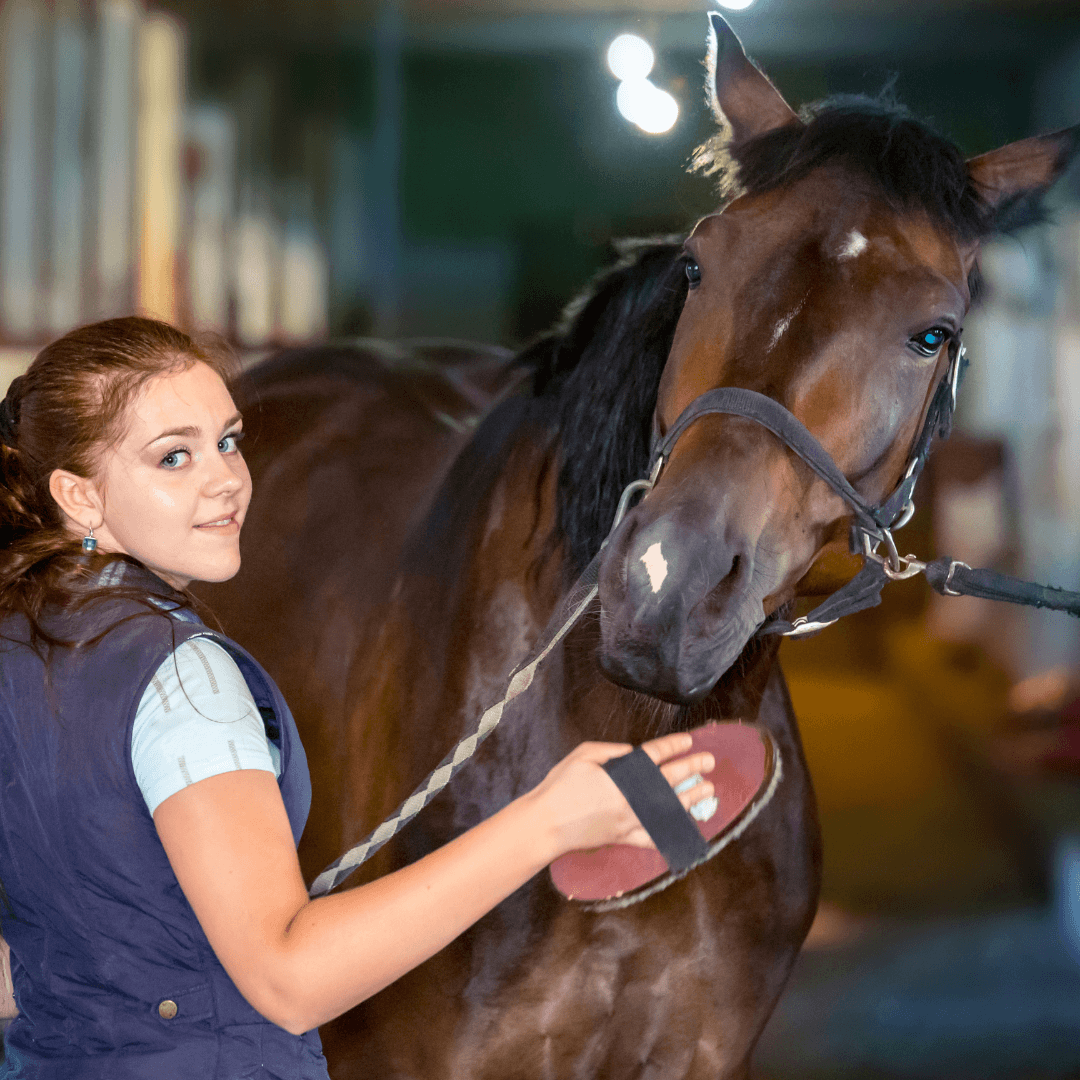
8. Schedule Grooming Sessions
Regular grooming sessions for your horse are essential for keeping them cool during summer.
Grooming helps maintain a clean and tidy appearance, significantly promotes air circulation, and prevents heat buildup.
Use a soft brush or grooming mitt to remove sweat, filth, and dust from your horse's coat.
This maintains their skin's cleanliness and health and improves ventilation because dirt and debris can obstruct the body's natural cooling process.
Grooming also helps remove excess hair or shedding undercoats, which can act as insulation and trap heat against the skin.
Reducing the amount of hair enables air to flow more freely, keeping your horse cooler. Pay attention to areas where sweat accumulates, such as the neck, under the saddle, and girth.
Thoroughly removing sweat helps prevent skin irritation and allows for better heat dissipation. Additionally, grooming sessions allow checking for any skin issues or disturbances requiring attention.
Regular grooming helps keep your horse comfortable and strengthens the bond between you and your equine companion.
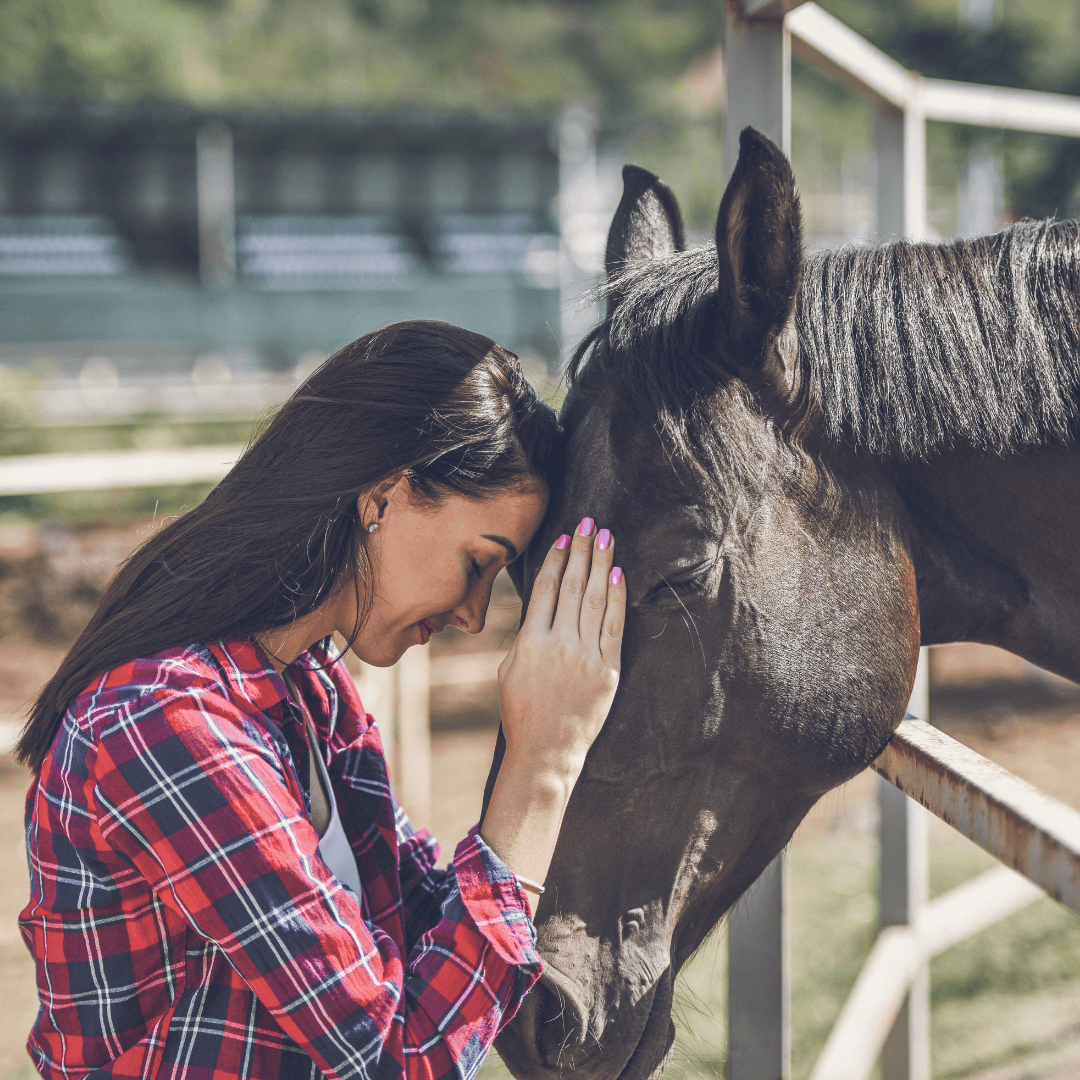
9. Monitor For Signs Of Heat Stress
Monitoring your horse for signs of heat stress is crucial during hot summer days. Keep a close eye on your horse's behaviour, paying attention to any changes that may indicate they are struggling to cope with the heat.
Excessive sweating, particularly in the neck, chest, and under the saddle, can signify heat stress.
Rapid or laboured breathing, lethargy, and an elevated heart rate indicate that your horse may be experiencing heat-related discomfort.
If you notice any of these symptoms, it's important to take immediate action to cool your horse down.
Move them to a shaded area or a well-ventilated stall, and provide them with cool water to drink.
You can also use a hose or wet towels to apply cool water to their body, focusing on areas with major blood vessels like the neck and underbelly.
If your horse's condition does not improve or worsens, it is essential to contact a veterinarian for further guidance.
Heat stress can escalate quickly and lead to serious health complications if not addressed promptly.
By closely monitoring your horse and proactively addressing any signs of heat stress, you can help keep them safe and comfortable during the summer.
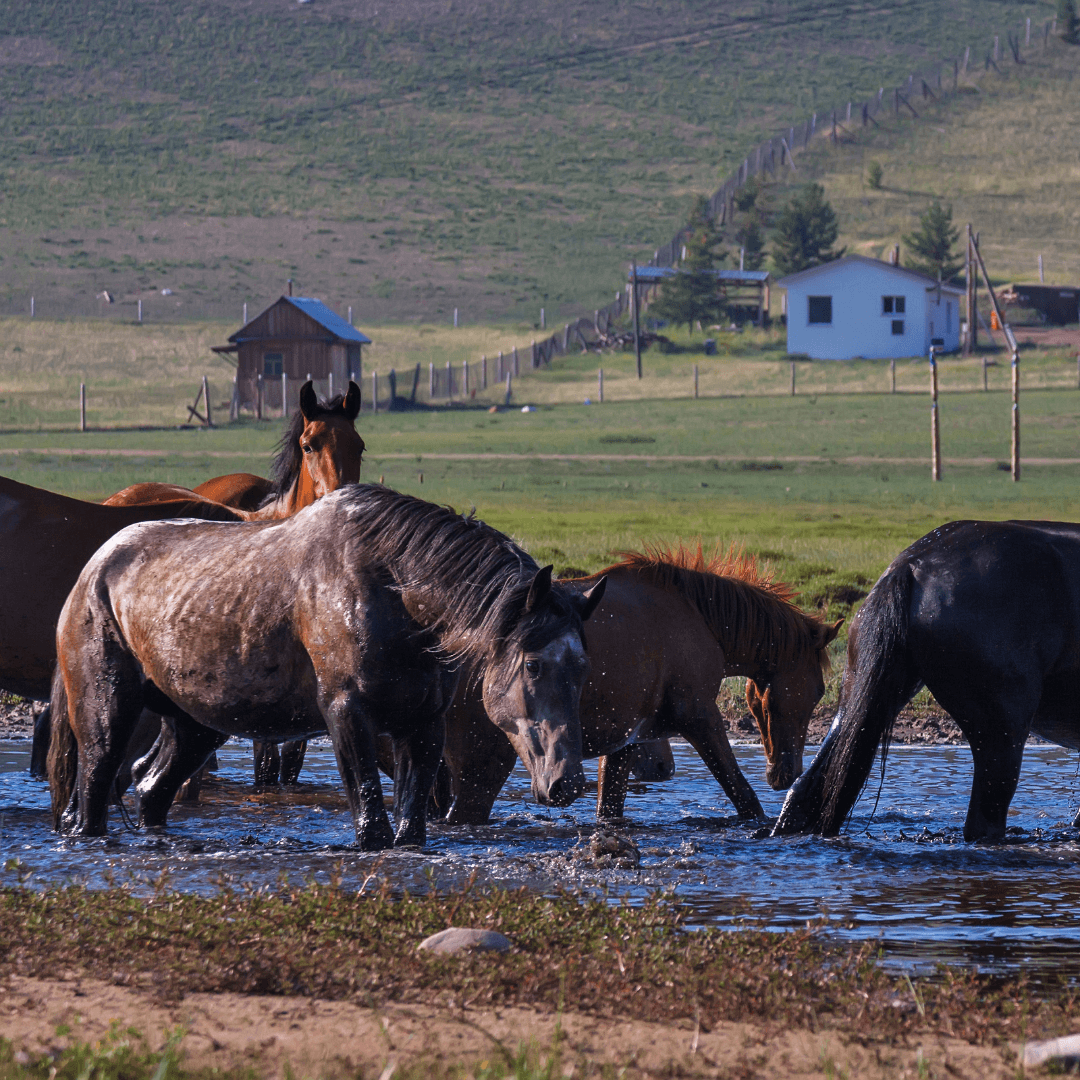
10. Provide A Muddy Or Wet Area
Providing a muddy or wet area for your horse can be an effective way to help them cool down during hot summer days.
Horses naturally seek out water or dirty spots to roll in, as the moisture helps lower their body temperature through evaporation.
You can create a designated area by providing access to a shallow pond or a small creek or by turning on sprinklers in a designated space.
Alternatively, you can simulate a muddy area by wetting the ground with a hose. The wet ground or mud helps to cool the horse's body as the moisture evaporates from its skin.
This evaporation process helps dissipate heat and provides temporary relief from the heat. Monitoring the area to ensure the ground is slippery and safe for your horse is important.
Additionally, ensure ample space for your horse to roll and move comfortably. Providing a muddy or wet area can be an enjoyable and natural way for your horse to regulate their body temperature and find relief from the heat during the summer months.
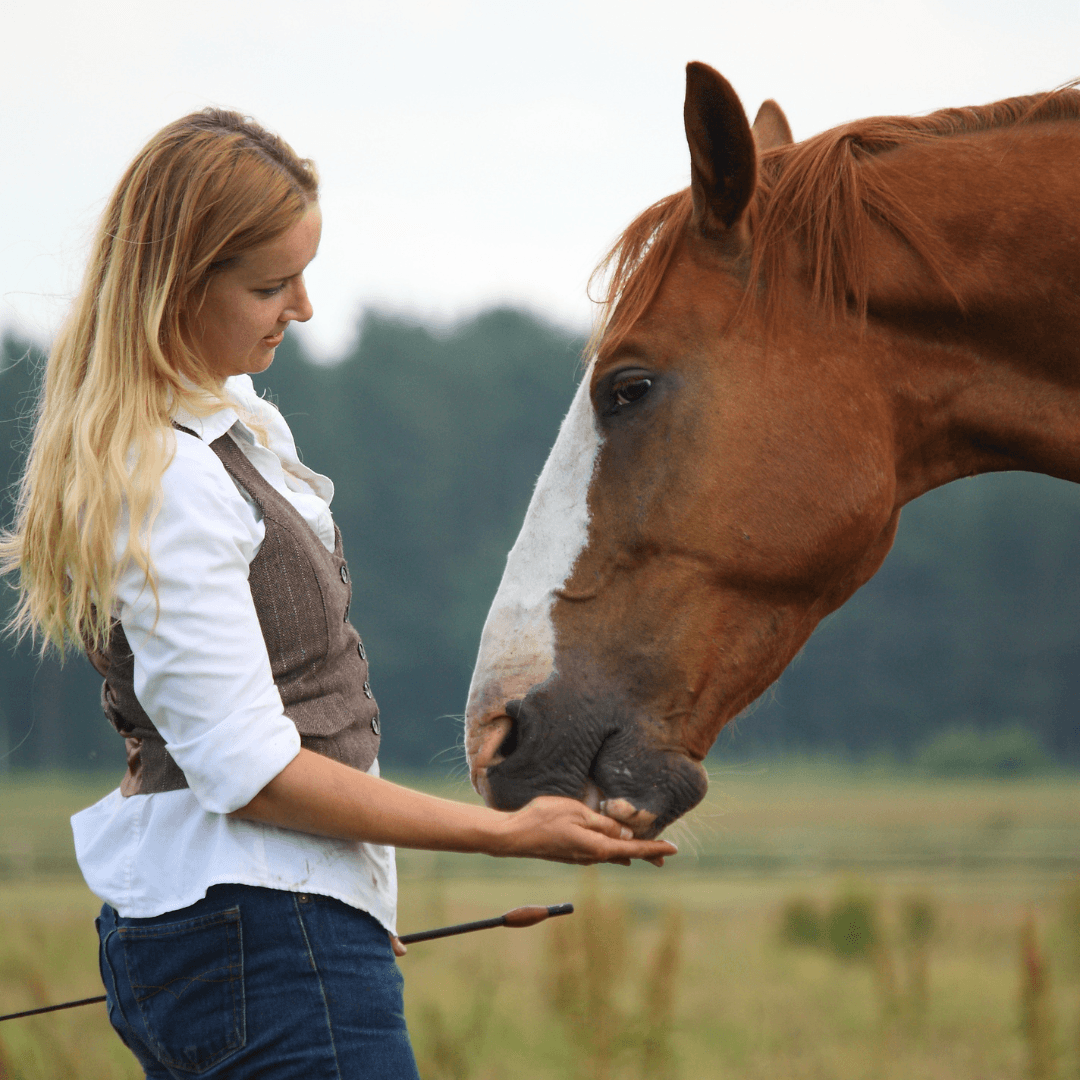
11. Frozen Treats
Frozen treats can be a delightful and effective way to keep your horse cool during the summer. You can offer your horse ice cubes or frozen fruit, such as watermelon or apples, as a refreshing snack.
These treats provide hydration and help lower your horse's body temperature. Another option is making homemade horse popsicles by freezing water and their favourite fruits or vegetables.
These icy delights can keep your horse entertained while providing a cool and hydrating treat.
When offering frozen treats, monitoring your horse to ensure they eat them safely is essential. Avoid giving them large chunks of frozen items that could pose a choking hazard.
Instead, provide smaller pieces or use special moulds for making horse-friendly popsicles. Frozen treats can be fun and tasty to help your horse beat the heat and stay hydrated.
Remember to offer them in moderation as part of a well-balanced diet, and always provide access to fresh water alongside the frozen treats.
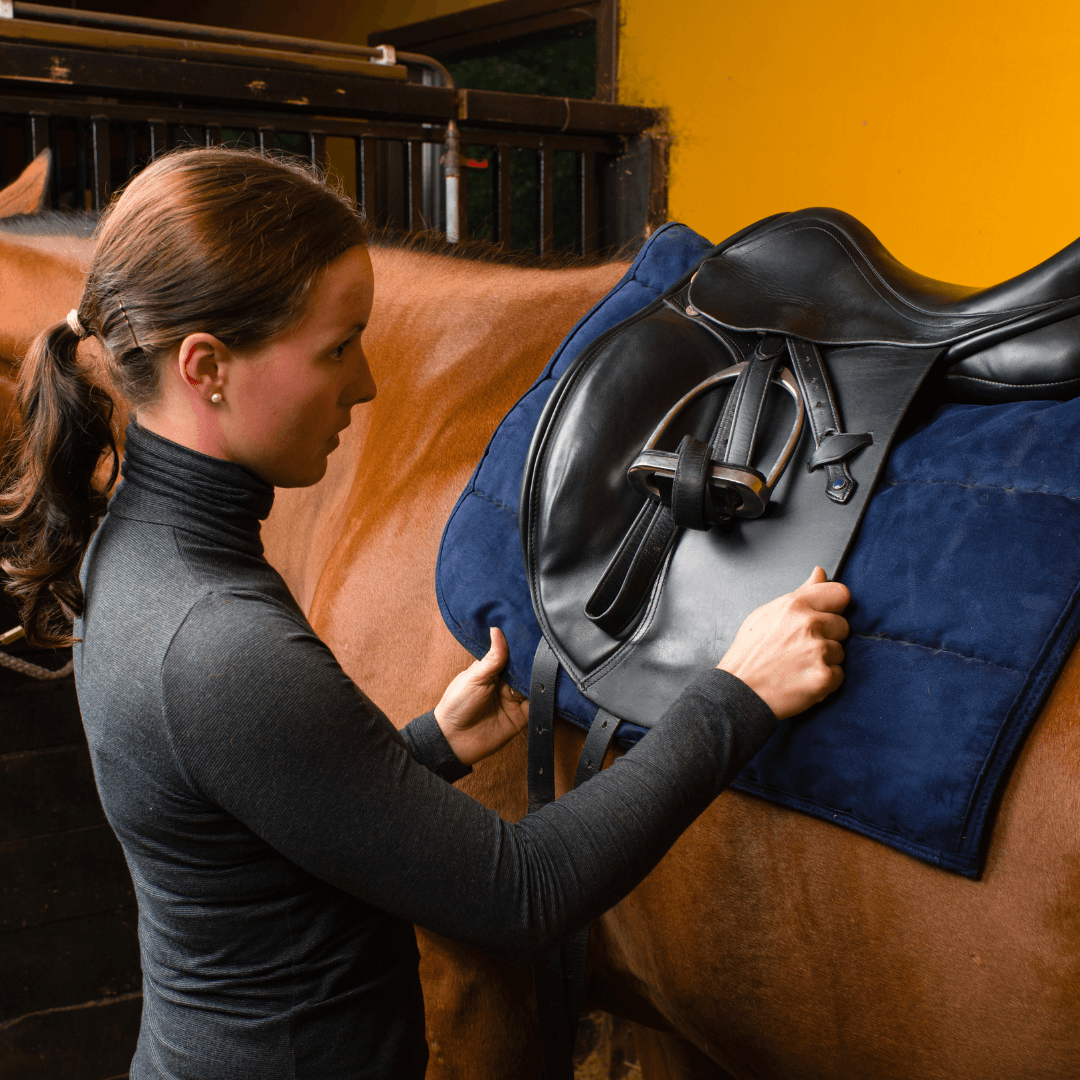
12. Use Cooling Blankets Or Sheets
Using cooling blankets or sheets can be a helpful strategy to keep your horse cool in hot weather.
These specialized blankets or sheets are made from moisture-wicking materials that help draw sweat away from your horse's body, allowing for better evaporation and heat dissipation.
They often have built-in properties, such as reflective or breathable fabrics, that enhance the cooling effect.
Cooling blankets or sheets can be particularly beneficial for horses prone to sweating heavily or intense exercise or work environments.
They provide an added comfort layer and help regulate body temperature during hot and humid conditions.
When using cooling blankets or sheets, it's important to ensure they fit properly and are securely fastened to avoid discomfort or potential hazards.
Regular monitoring of your horse's body temperature and condition is essential, as individual horses may have different needs and tolerances for heat.
Always follow the manufacturer's instructions for properly using and maintaining the cooling blankets or sheets.
Cooling blankets or sheets can contribute to your horse's overall comfort and well-being during summer with the right fit and appropriate usage.
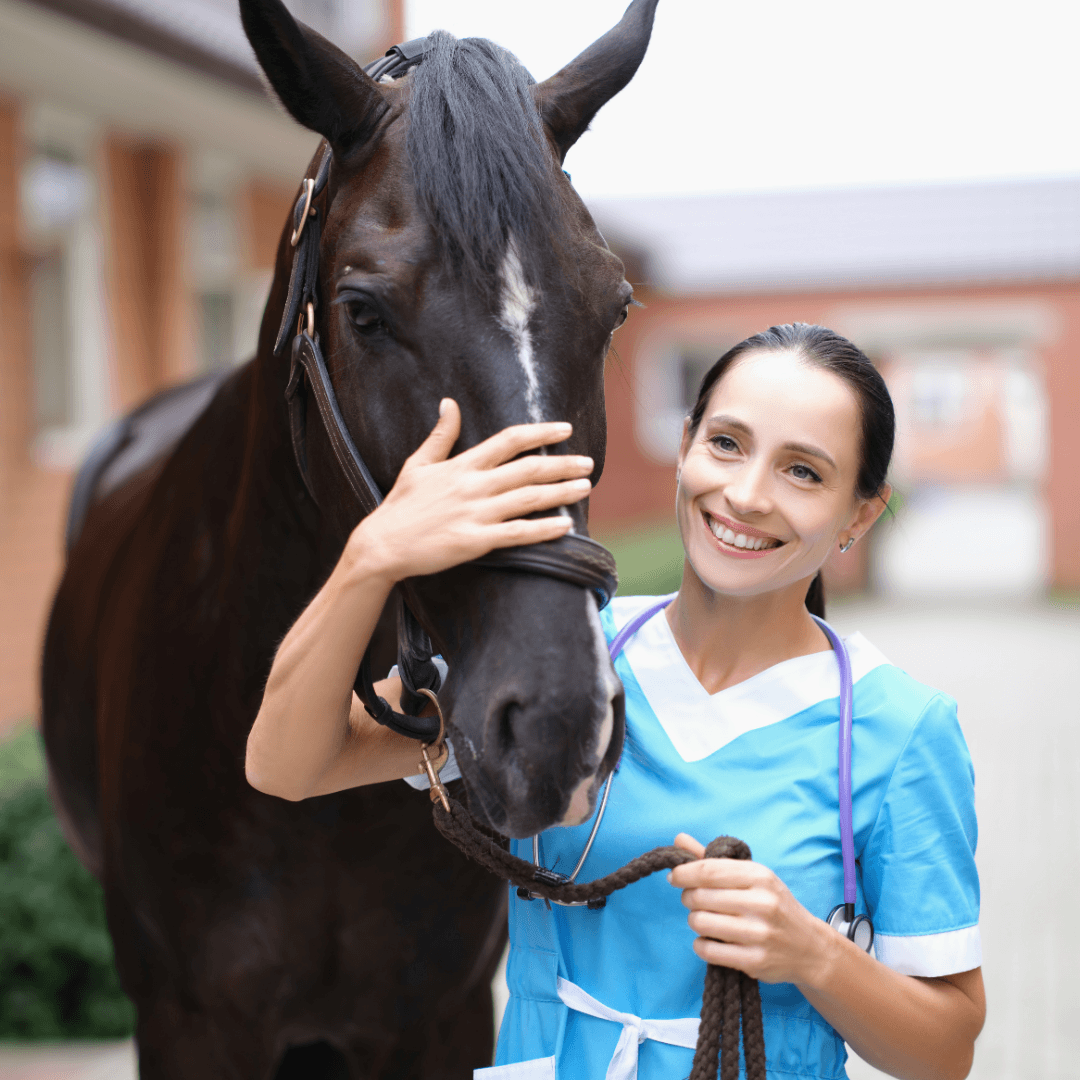
13. Consult With A Veterinarian
Consulting with a veterinarian is essential in ensuring your horse's well-being and health during hot weather.
A veterinarian can provide expert advice and guidance based on your horse's individual needs, health history, and any specific concerns you may have.
They can assess your horse's overall health and fitness level to determine its ability to handle hot weather conditions.
A veterinarian can also help identify any underlying medical conditions that may make your horse susceptible to heat-related stress or complications.
They can recommend appropriate hydration strategies, dietary adjustments, and specific measures to keep your horse cool and comfortable.
Additionally, a veterinarian can educate you on the signs of heat stress or heat stroke to watch out for and provide instructions on administering first aid if needed.
Consulting with a veterinarian allows for a proactive approach to your horse's well-being and ensures necessary preventive measures or treatments are in place.
By working closely with a veterinarian, you can have peace of mind knowing that you are providing the best possible care for your horse during the summer months.
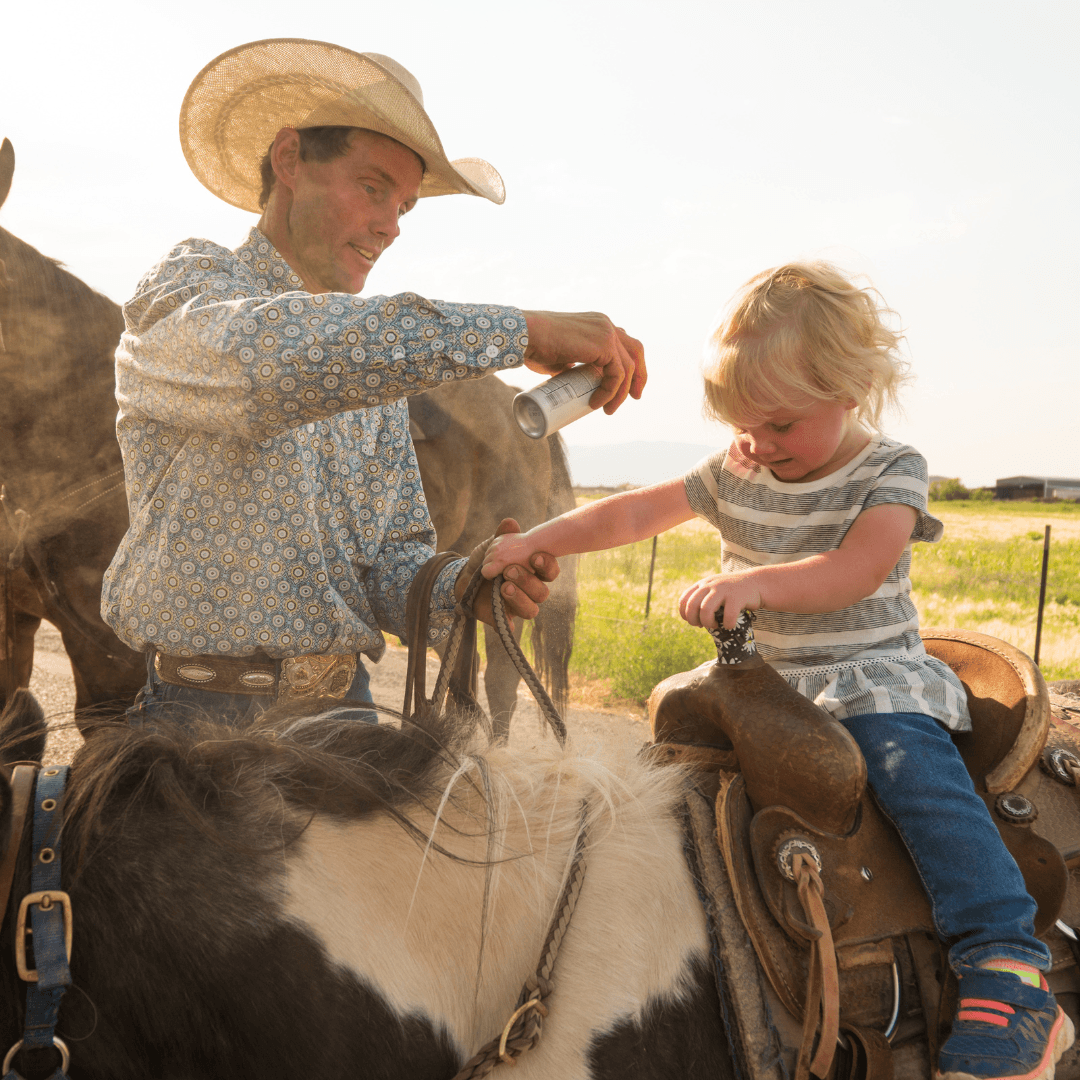
14. Control Insect Populations
Controlling insect populations is important to keep your horse cool and comfortable in the summer. Flies and other insects can irritate your horse and increase their stress levels.
Applying fly sprays regularly can help repel flies and minimize their presence around your horse. Additionally, using fly masks can protect their sensitive eyes from irritating flies.
Fly sheets are another useful tool, providing a physical barrier between your horse's body and flying insects.
They are typically lightweight and breathable materials that allow for airflow while keeping insects at bay.
Regularly cleaning the horse's stable or paddock area, removing manure, and ensuring proper manure management can help reduce the breeding grounds for flies.
Installing fly traps or using natural deterrents like certain plants or essential oils can also effectively control insect populations.
Taking proactive measures to control flies and insects can enhance your horse's comfort level and minimize exposure to potential irritants during summer.
Conclusion
Keeping your horse cool during summer is crucial for their well-being and overall health.
Implementing the above tips can help prevent heat stress and ensure your horse remains comfortable in hot weather.
Remember, every horse is unique; observing their behaviour and adjusting strategies is important.
By prioritizing your horse's well-being and taking proactive measures, you can help them stay cool, comfortable, and healthy throughout the summer season.
I trust you enjoyed this article on the Best Tips For Keeping Horses Cool In Summer. Please stay tuned for more blog posts shortly. Take care!
JeannetteZ
Your Opinion Is Important To Me
Do you have thoughts, ideas, or questions? I would love to hear from you. Please leave your questions, experiences, and remarks about the Best Tips For Keeping Horses Cool In Summer article in the comments below. You can also email me at Jeannette@Close-To-Nature.org.
Disclosure
This post may contain affiliate links. As an Amazon Associate and other affiliate programs, I earn from qualifying purchases at no extra cost to you. Please read my full affiliate disclosure.
You might also enjoy these blog posts:
Most Expensive Horses In The World
Best Ways To Fight The Aging Process
Best Tips To Reduce Chronic Pain Without Medication
Best Tips For Managing Anxiety Before Surgery
Interesting Wildlife Species: Unravel The Secrets Of The Animal Kingdom

